

Corp! magazine believes in celebrating business and career success in all of its various iterations.
In partnership with MichBusiness, we are recognizing some of Michigan’s leading businesswomen who are receiving Distinguished Leadership Awards.
Our winners are being feted during the Women Thrive Conference, Feb. 4th at MGM Grand Detroit.
The ongoing mission of the annual Women Thrive Conference is to promote high professional standards, encourage leadership, provide education and ensure equal advantages for women who have demonstrated excellence in their professions, place of employment and volunteerism.
Those are attributes held by each of the Distinguished Leadership Award recipients.
MichBusiness recognizes women in three categories: Hall of Fame (those who have cemented their legacy), Distinguished Leadership Honorees (those who stand out for their ongoing organizational stewardship) and Shooting Stars (promising up-and-comers who are already making their mark on Michigan’s scene).
We asked each award recipient to share some thoughts on their life experiences and what it takes to build a thriving career. (Some of their responses have been edited for length and clarity.)
Hall of Fame Inductees
Teresa Lucido
Senior Vice President, Sales Excellence, Comcast Spotlight
Teresa Lucido, whose career in media sales has culminated in her current position as senior vice president, Sales Excellence, at Comcast Spotlight, has a message for other women who are striving to establish themselves in the business world: dismiss the negative self-talk.
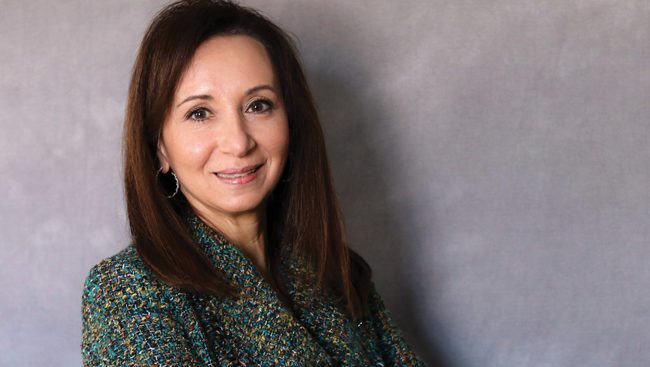
“It’s common for women to doubt they’ve earned their rightful place at the table,” she said. “Often this manifests itself in lack of confidence, limiting your voice, fear of raising your hand for a plum assignment and not taking risks. Make your presence known as a contributor and collaborator. Be confident and decisive.”
What is your guiding principle to live by?
Constantly strive to grow your knowledge base about everything. There’s room in every part of our lives to get smarter each and every day. Our personal and work lives are moving faster than we can keep up, and so is the world around us.
On a personal level, being a parent of a high school student in this day and age certainly poses a challenge: staying on top of all of the issues facing our young adults. It’s quite daunting just keeping up with the latest good/bad technology and electronic issues, academic pressures, general social concerns and the impact of social media. I work hard to strike the balance between finding ways to educate myself on the latest contemporary and societal issues, while working hard to keep the lines of communication and honesty open.
Who was your mentor in life and why?
Actually, I have made it a practice not to align with any single mentor. I have worked to foster multiple relationships with various individuals I respected and knew I could learn from. I looked for different skills and experiences that I could draw from. This way I could either narrow a learning opportunity to a leader with a specific skill set or, for a more general situation, I could call on a number of people to provide a broader breadth of experiences to consider.
What is your ongoing goal? What goal(s) do you still strive to achieve?
I have several ongoing goals, but one thing I try to keep in mind for them all is to AAPI: Always Assume Positive Intent. Pause that gene we have to immediately react to something and be more open. When I am able to do this, it’s a game changer in terms of my outlook and stress level. One of my favorite sayings is: It may be nice to be important, but it’s more important to be nice.
What is the best advice you can offer to other potential women business leaders?
Don’t obsess over the proverbial balance challenge that is fearfully ingrained into rising female leaders. A perfect balance doesn’t exist. How do I balance it all? No one does. The best approach is to aim for seamless integration of all aspects of your life. Don’t expect a perfect balance. I’d say I’m perpetually in the 60/40 mode, one way or the other, and that works for me.
Barbara McQuade
Professor of Law, University of Michigan
Barbara L. McQuade is a professor at the University of Michigan Law School, whose scholarly interests include criminal law, criminal procedure, national security, data privacy and civil rights, according to her biography on the law school’s website.
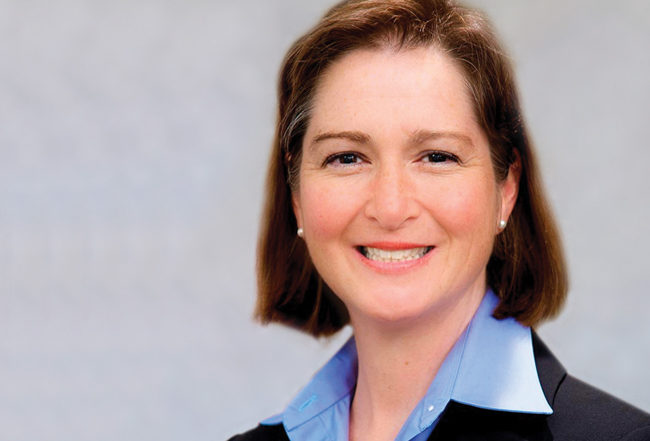
What was your worst business decision?
I’ve been at Comcast Spotlight for 12 years, but it should be 16. I said no to the first two recruitment attempts and wish I would have joined this fantastic company sooner. I let fear of change and a lack of confidence get in the way. Whenever I get the chance to counsel others who are seeking a career move, I pass on my learnings and advise them to explore the opportunity exhaustively, work through their heart/head decision dynamic and ultimately land on the side of risk. In the end, 99.9 percent of the time it will be the best decision.
From 2010 to 2017, McQuade served as the U.S attorney for the Eastern District of Michigan—the first woman to serve in that position. McQuade also served as vice chair of the Attorney General’s Advisory Committee and co-chaired its Terrorism and National Security Subcommittee. As U.S. attorney, she oversaw cases involving public corruption, terrorism, corporate fraud, theft of trade secrets, civil rights and health care fraud, among others.
Before becoming a U.S. attorney, McQuade served as an assistant U.S. attorney in Detroit for 12 years, serving as deputy chief of the National Security Unit, where she handled cases involving terrorism financing, export violations, threats and foreign agents.
She began her career as a law clerk for U.S. District Judge Bernard A. Friedman in Detroit and then practiced law at the firm of Butzel Long in Detroit. McQuade also previously taught at the University of Detroit Mercy School of Law.
Juliette Okotie-Eboh
Senior Vice President of Public Affairs, MGM Grand Detroit
Juliette Okotie-Eboh lays claim to a “sixth sense” that allows her to know when it’s time to reinvent herself in her career. An examination of her career path bears that out. She has been involved with civic and community affairs and government relations on behalf of MGM Grand Detroit since 2003.
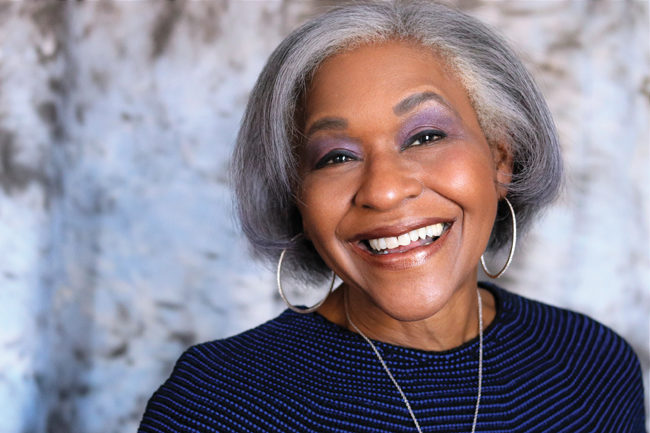
Okotie-Eboh, who holds a Ph.D. in city/urban, community and regional planning from the University of Michigan, also has worked in health care, city government, banking and the international business arena. And in between it all, she found time to write a book, “10 Things I Know,” in which she expounds on her rules of living.
What is your guiding principle to live by?
Always look for a win-win!
Who was your mentor in life and why?
My parents. They were my biggest cheerleaders and always made sure I was productive, happy and, most of all, had a lot of fun.
What is your ongoing goal? What goal(s) do you still strive to achieve?
To mentor others, especially women in the workplace.
What is the best advice you can offer to other potential women business leaders?
When the chips are down, reach out and help somebody else. That will take your mind off your problems.
What is your most recent success story?
Completing my book — “10 Things I Know.”
What was your best business decision?
To cultivate a sixth sense about when it is time to switch gears and move on in my career. In other words, being able to reinvent myself.
What was your worst business decision?
I don’t have one.
Ann Thomas
Executive Producer, WJR News Talk 760
You might call Ann Thomas a morning person. She serves as executive producer of the “Paul W. Smith Show,” which airs from 5:30-9 a.m. weekdays on WJR News Talk 760. And even though she’s on the job while most people are still sleeping, she manages to maintain a sunny attitude. “I think it’s important to try to be nice at all times, because you never know what people are dealing with in their lives,” she said.
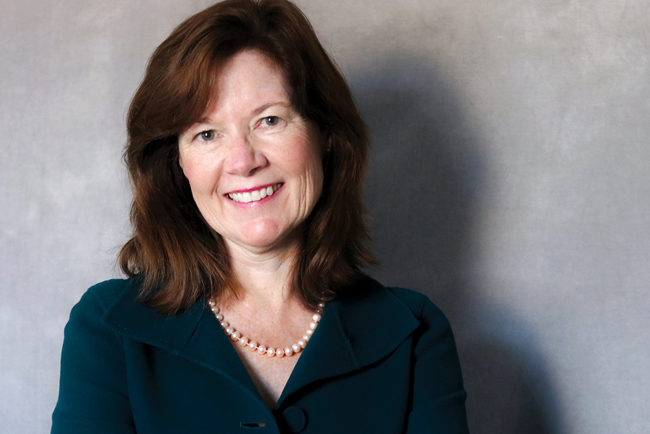
Who was your mentor in life and why?
Gene Healy, a senior anchorman in the WJR news department, took me under his wing and taught me everything he knew about radio news. When I joined the news department in 1982 as a young intern, it was a busy news department and he took the time to show me the ropes and work with me on my news delivery and writing. As my career progressed, he stayed in touch and remained very supportive until his death a few years ago.
What is your ongoing goal? What goal(s) do you still strive to achieve?
My goal is to get up every day and try to be positive and slow down enough to pay attention to the people in my life at work and at home.
What is the best advice you can offer to other potential women business leaders?
I would recommend that young women in business take the time to network with experienced men and women in the community who can give them advice and guide them as their careers advance.
What is your most recent success story?
Eight years ago I started a program here at WJR called “Women Who Lead.” We recently had our eighth annual Paul W. Smith breakfast at Joe Muer Seafood in Detroit, and it was great to see how much it meant to the women in the room to be honored for their accomplishments.
What was your best business decision?
My best business decision was to hire a financial adviser a few years ago to review my finances, and it has forced me to pay attention to saving for retirement.
What was your worst business decision?
I wish I would have started saving earlier for retirement. I know some women are good at that, but many are not, and I would encourage young women to pay attention to their finances.
Distinguished Leadership Honorees
Camille Walker Banks
Executive Director, Goldman Sachs 10,000 Small Businesses,
Wayne State University
When Camille Walker Banks reports to work each day, it’s with the intent of helping the people around her. “When I’m able serve as a strategic resource and support someone in reaching their goals, I am satisfied and proud,” said the executive director of Goldman Sachs 10,000 Small Businesses at Wayne State University. Goldman Sachs 10,000 Small Businesses is a $500 million investment to help entrepreneurs create jobs and economic opportunity by providing them with greater access to education, financial capital and business support services. The program currently operates in 17 markets in the U.S. through a network of more than 90 academic and community partners and the program continues to expand on a city-by-city basis.
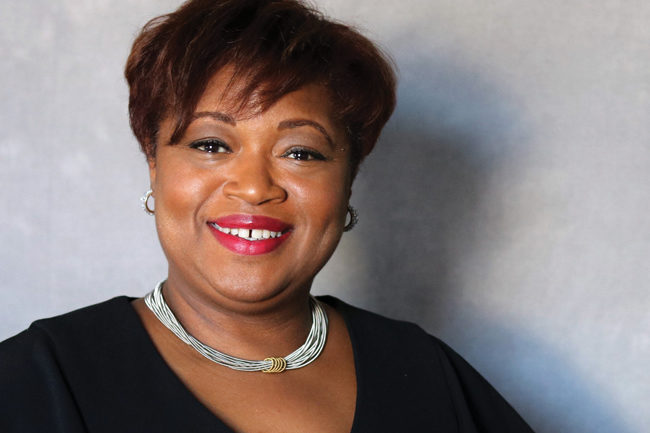
“Connecting the dots gives me joy. I help individuals and organizations achieve personal, spiritual and economic fulfillment by listening intently for opportunities to access capital and resources they don’t know about, or don’t feel that they deserve,” Banks said.
Who was your mentor in life and why?
My first boss immediately following graduation from WSU’s business school was Terry Harder, a young entrepreneur and small-business owner who gave me opportunities to develop skills that I never would have developed had I started my career in a corporate setting. Terry taught me to be successful using sheer grit, strategic planning and bootstrapping. I learned to set up business ventures for profit and nonprofit organizations, real estate project management and financial planning, marketing/advertising strategies and, most important, the art of focusing or motivating a team around a specific goal. I was exposed to disenfranchised, vulnerable people, as well as people with means, and I learned that there isn’t much difference between them but for the access to resources. I learned how to be an advocate for a wide array of people and/or interests.
What are the biggest challenges facing women business leaders?
Our society is changing and adapting to changing perspectives of tolerance, as well as diversity and inclusion. It is no longer “cool” to walk into a project management meeting or RFQ information session and have the room lack in gender, age, race and other diversity categories. Further “disrupting” systems that are designed to favor a select few people by developing new systems that support, empower and give access to resources and timely information will help women and minorities overcome business growth challenges. It’s time to focus on successes as a team/region, rather than those differences that have divided us in the past. We can all benefit from our differences and change the world as we know it.
What was your best business decision?
I followed my heart and shifted from a career in corporate finance to economic and community development, a servant-based approach to work and leadership. I saw a need in my westside Detroit neighborhood and took the initiative to solve some of the problems impeding growth in urban communities. As a single mother with a 10-year-old, I returned to school and studied urban and regional planning, instead of obtaining an advanced business degree. The unique pairing of disciplines offered a perspective that increased my value proposition when pursuing posts with the city of Madison Heights, Michigan Economic Development Corp. and Goldman Sachs 10,000 Small Businesses, as I was able to help these organizations and their clients rethink their approaches to entrepreneurship and business growth. I spoke the language of the private and public sectors, which positioned me as a critical and respected adviser on both sides of the table.
What was your worst business decision?
I once accepted a position for the sake of change, instead of considering my personal satisfaction needs. I found myself in a worse predicament than my previous post, and better understanding what gives me satisfaction in my work could have prevented the move in the first place. The new environment treated clients as transactions, focusing more on billable hours than adding value. I felt uninspired, unfulfilled and dissatisfied, which showed up in my work … it always shows up in the work. Eventually, however, I learned that I feel empowered when I can use my knowledge of resources to identify gaps or needs.
Andrea Brimmer
Chief Marketing and Public Relations Officer, Ally Financial
Andrea Brimmer understands the importance of doing it right. In fact, she counts development of the Ally Financial “Do It Right” tagline as among her best business decisions. “It has become so much more than just a tagline,” she said. “It is our brand purpose, core and central to who we are and what Ally is about.” On the flip side, she acknowledges that she didn’t always get things right early in her career as an ad agency executive. “I invested too much of myself personally into my job,” she recalled. “I missed a lot of time with my kids that, particularly now that I’ve gotten older, I wish I could have back. I would have been better at my job if I’d worked harder to find a balance. I’ve learned from that and I’ve tried to pull that into my career at Ally.”
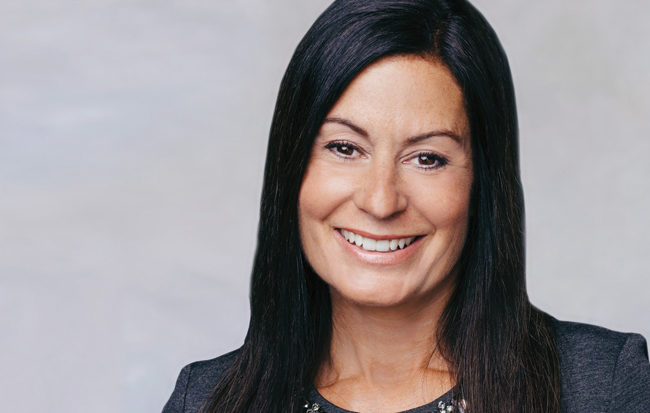
What is your guiding principle to live by?
I love the quote “The meaning of life is to find your gift, and the purpose is to give it away.” As I’ve gotten older, this is something that I have learned to appreciate more. I realize that it isn’t OK to be selfish with your purpose. We all have a higher calling and the notion of giving it away is very important.
Who was your mentor in life and why?
So many people have helped me in all different ways throughout my life. My parents have always been there to help me when things get hard. They were wonderful with taking care of my children when I was a working single mother and they have always been there for me. Professionally I’ve had great mentors, including people at Ally like Jeff Brown, Ally’s CEO. He has given me autonomy and taught me about the importance of culture. Diane Morais, president of consumer and commercial banking products at Ally Bank, has been a huge mentor to me as well. She’s been a wonderful sounding board, business partner and a great friend. She understands what I’m going through because she is someone with an equally demanding job and home life. It’s helpful to have someone who understands.
What are the biggest challenges facing women business leaders?
Being a female leader is hard because it’s full of challenges and multitasking. First and foremost, you have to never give up and keep pushing on. You have to understand that it’s OK not to be perfect at everything. You should focus on the things that are most important to those in your life who matter most. Have the self-awareness to know that you can’t be all things to all people, but you can focus on what’s the most important to the people in your life at the right time.
What is your ongoing goal? What goal(s) do you still strive to achieve?
My team and I are very focused on pushing our brand forward, becoming a usage brand and transforming into a modern digital brand. We are doing so by creating content that builds an emotional connection between Ally and consumers, by constructing an ecosystem that surrounds the consumer at every touch point, not just when they are considering which institution they want to bank with. We’ve done a great job so far
of differentiating the Ally brand and we’ll continue to separate ourselves from the pack through great, disruptive marketing that helps us break through the clutter in today’s advertising landscape.
What is the best advice you can offer to other potential women business leaders?
It is important to find good leaders that you can depend on and who believe in the same things you do regarding culture, work-life balance and other important issues. Try to surround yourself with amazing people who inspire you. I also think it’s important to operate an open-door policy and let your team know that you care about them as people. If they feel motivated, they’ll run through walls for you, but you need to make it authentic and real. You need to take care of culture first and everything else will take care of itself.
Faith Fowler
Executive Director, Cass Community Social Services
Faith Fowler understands what it takes to make a big impact. Consider the Tiny Homes Detroit program advanced by Cass Community Social Services (CCSS), which constructed homes under 400 square feet. The structures are then rented to formerly homeless people or senior citizens, who then have the opportunity to buy their home. It’s just one of many new initiatives CCSS has launched under Fowler’s leadership.
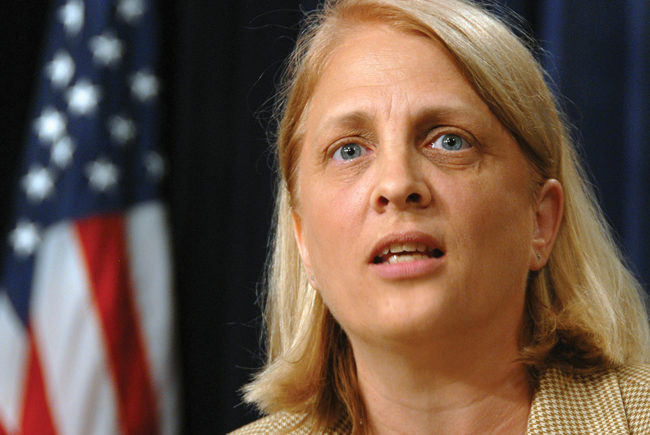
The Detroit-based agency works across the city in areas of concentrated poverty, providing programs for food, health, housing and jobs. Recent program expansions include opening the Cass House (a residential program for homeless men with HIV/AIDS) and Green Industries (doubling the organization’s vocational training and employment opportunities while helping to clean the city and encourage recycling).
What is your guiding principle to live by?
Do what you love.
Who was your mentor in life and why?
My mentors come from history. I devour biographies and autobiographies about individuals who have had a positive influence during a difficult period or in a challenging place. Their struggles have lessons for today.
What are the biggest challenges facing women business leaders?
Fear—of failure, success, competition, lack of work-life balance, etc.—still holds women back in many instances. How to mitigate fear is a major challenge.
What is your ongoing goal? What goal(s) do you still strive to achieve?
Build a team that will outperform and outlast me.
What is the best advice you can offer to other potential women business leaders?
Let critics and/or obstacles energize you.
What is your most recent success story?
The establishment of a Legacy Society.
What was your best business decision?
Establishing a deputy director position (filled since 2016 by Kimberly Hudolin).
What was your worst business decision?
Waiting to outsource the CFO position.
Michele Hodges
President, Belle Isle Conservancy
With an extensive background in community and economic development, Michele Hodges knows how to get things done. Fortunately, she’s willing to offer advice on how to marshal projects in the workplace. “Be an elegant pit bull,” advises the president of the Belle Isle Conservancy. That organization was formed in 2011 through a merger of four existing nonprofits — Friends of Belle Isle, Belle Isle Botanical Society, Belle Isle Women’s Committee and Friends of the Belle Isle Aquarium — to bring more private and public resources to the island park. “Get the job done in a decisive, intelligent and well-conceived manner, but do it elegantly, while being grounded, always, by the highest levels of character and integrity.”
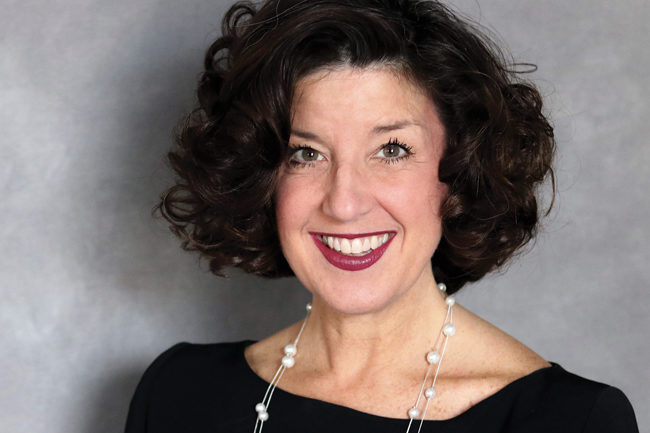
What is your ongoing goal? What goal(s) do you still strive to achieve?
I constantly challenge myself to approach problem-solving in a holistic and comprehensive fashion that leverages and creates the greatest value for all parties involved. This approach ensures business models are bolstered and outcomes layered with benefits. I begin by establishing a matrix that doesn’t waste time on obvious solutions and forces one to focus on those that are truly unexpected, innovative and entrepreneurial.
As far as a goal yet to be achieved, I see resolution to racial inequities as our societal domino. If we find the solutions, everything else falls into place. I will forever be in pursuit of it.
What is the best advice you can offer to other potential women business leaders?
Bring a champion mentality to the table, every day. Imagine yourself as the solitary person on stage, and the curtain is about to rise and expose you to thousands. You better be ready and your knees better not be shaking, because you are overprepared and ready to bring down the house.
What was your best business decision?
Using strategic thinking to ensure the most robust business models for various initiatives has proven fruitful. An example would be a partnership the Belle Isle Conservancy has with Wayne State University, whereby the university utilizes the Belle Isle Aquarium as a field office and a place for meaningful research and education. This partnership resulted in a $1.2 million grant from the National Science Foundation, thus serving as a pathway to opportunity otherwise unobtainable. WSU also assists with capital improvements at the aquarium and lends a level of credibility that has enabled our education program to take flight in a significant and measurable way. This business model is also well received by donors, as they can be certain every resource is leveraged before an ask is made.
What was your worst business decision?
While serving on the board of directors for a local nonprofit, our donated office space was no longer available and we were challenged with finding a cost-effective replacement solution. I developed and advocated for a mission-centered opportunity that would enable the organization to control costs and be more actively engaged with the population it served, but it was voted down. I will forever regret not pushing harder and taking a stronger stand for my position.
And I will always regret not having an extra pair of pantyhose in my bag. I had to be on stage, only to realize I had a large run up the back of my leg. Ugh!
Gretchen Perkins
Partner, Business Development, Huron Capital
During her 30-plus years of award-winning work in the finance and business development sectors, Gretchen Perkins has gained insight into how women can shape perceptions of themselves in the workplace. “My best advice to future women business leaders is to lose the self-doubt,” said Perkins. “Display confidence and conviction in your capabilities, skills and contributions to your organization. You are as qualified as anyone else at your position — maybe more so.”
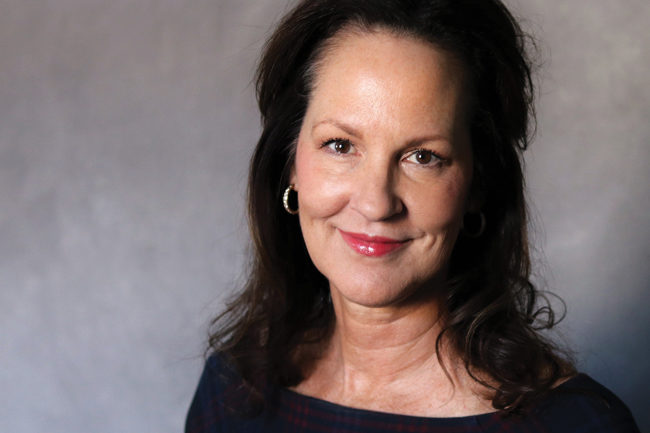
She also advises future women leaders to develop an appropriate amount of dispassion. “Not everyone likes you — it’s completely fine. Women are typically ‘pleasers’ and work overtime to get everyone to like them. It is not necessary or useful. Dispassion will also help combat the ‘bossy’ or ‘hysterical female’ perception that can occur when women express themselves with passion.”
Who was your mentor in life and why?
I would have to say that my father was my mentor. As an Episcopalian minister, he showed me the value of outreach and consensus building, both of which are key skills that have served me well in my career.
What are the biggest challenges facing women business leaders?
The first challenge is there are typically few women leaders already in an organization whom they can look up to for guidance or mentoring. Most of us women leaders today have relied upon male colleagues for mentorship, which is also a great strategy, but if women mentors could augment it as well, that would be ideal. This is changing, for sure, and will continue to do so as we bring other women up behind and with us.
What is your ongoing goal? What goal(s) do you still strive to achieve?
I continue to strive to improve my creativity. Specifically, I am always considering new ways to accomplish our team goals. I try to think about new tactics and strategies for tackling our objectives and not just rely on the historical (though proven) protocols for accomplishing them. The goal is to be a market leader and rise above the competition by finding new ways to do things. I am fortunate to have a senior partner to whom I report, Mike Beauregard, who routinely asks “What have you failed at today?” This is a refreshing perspective that takes the fear out of failure and fosters creativity.
What was your best business decision?
I would say my best business decision of late has been to delegate more. Not only does this empower others on the team and helps to develop new skills in the firm, it frees me up for my highest and best use — being in front of acquisition candidate referral sources and the investor community.
What was your worst business decision?
My worst business decision has been my delay in being knowledgeable about and embracing the power of social media in our business. As someone who has prided myself on the scope and power of my personal network, I was slow to realize that social media tools are network amplifiers and offer an environment for discourse that is uncluttered by the email inbox. It is only within the last 12 months that I have truly embraced social networks for business purposes. I’m looking forward to extracting even more value out of them in coming years.
Shooting Star Honorees
Genevieve Anyiah
CEO, Embrace the Natural You LLC
Genevieve Anyiah believes in living fearlessly and with confidence. “My company’s key message is to just embrace your natural beauty because I believe it creates a fearless confidence, allowing you to fearlessly pursue many things,” said Anyiah, who founded the natural hair care products company in 2012. Her company’s mission is to “educate women on how to conquer and embrace their natural tresses by instilling confidence in every customer, influencing women to be themselves and inspiring self-love.”
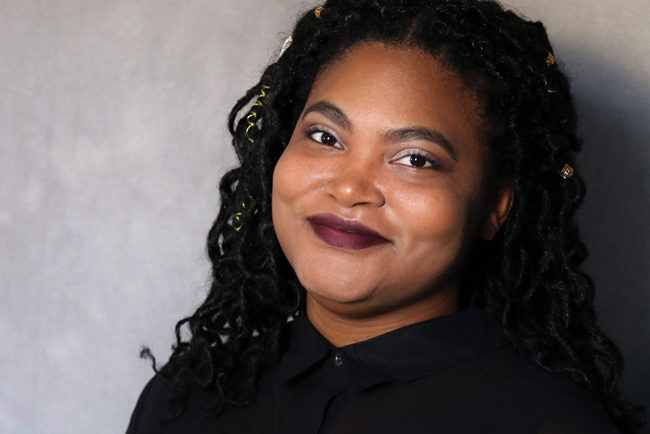
Who was your mentor in life and why?
My parents are my biggest mentors, as I consult them on every big decision, especially when I decided to pursue entrepreneurship. They told me I had accomplished everything career-wise and academically with a B.S. and M.S. in business administration. Therefore, they were very much on board when I decided to get my cosmetology license, open a salon and offer amazing natural hair care products, because I truly believed in them.
What is your ongoing goal? What goal(s) do you still strive to achieve?
My ongoing goal is pursuing more wholesale accounts and getting our natural hair care product line into medium to large chain stores. We are currently in 12 locations, but I would like us to be in many more locations. Our textile side of the business is already selling in Europe, but our next goal is getting a representative in order to export our hair care product lines to Europe. We are also trying to work with small independent regionally located manufacturers, as far as our production and packaging, in order to meet the growing demand for our natural hair care product line online.
What is the best advice you can offer to other potential women business leaders?
Know that sometimes you have to just jump out there and do it! Sometimes, we spend so much time planning that opportunities just pass us by. Another piece of advice is to pursue multiple streams of income to build a successful business. I also believe you have to be passionate about whatever you are selling, or it won’t be successful.
What was your best business decision?
The best business decision was our product line label change at the end of 2016, as it appealed to a larger demographic and allowed the products to get picked up in more locations.
What was your worst business decision?
Bad business decisions eventually become learning lessons. I have had my fair share of bad marketing decisions, but the success is in turning it around. We used to work with a company that helped find beauty influencers to promote our brand, but the content turned out better when we worked with influencers of our own choosing. We wasted two years and lots of money with that company.
Laura Grannemann
Vice President, Strategic Investments, Quicken Loans Community Fund
Laura Grannemann is uniquely positioned to observe the interplay of business and philanthropy. “A lot of people see philanthropy as distinct from business,” she said. “However, as someone who invests in community every day, I see business decisions everywhere I turn.” The Quicken Loans Community Fund works to prevent homeowner foreclosure in Detroit.
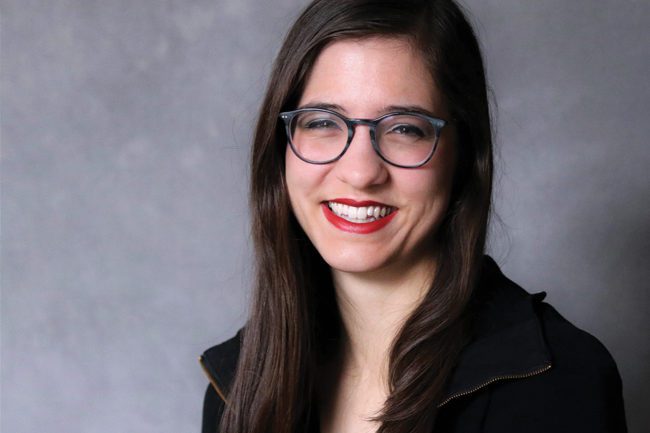
“The best part about working with a business like Quicken Loans is that there are so many tools that a business can use to give back to the Detroit community—leadership, team member talent, technology, government relations and, yes, philanthropic capital,” Grannemann said. “Learning to coordinate the incredible power and opportunity that all of those tools offer has been incredible, because I can see how it makes the impact on our city even stronger.”
What is your guiding principle to live by?
Always strive to understand why. I have found incredible power in asking questions to comprehend and address the root causes of a problem. Today’s world—whether we are looking at relationships, technology, housing, workforce or the success of our cities — is driven by incredibly complex systems. Without deeply understanding the detailed nuance of the people and systems around us, we cannot hope to build a better reality.
Who was your mentor in life and why?
My mother has been the main influence in my life. I have seen her set a beautiful example for my sister and I of what a working mom looks like. She is a compassionate, effective and strong businesswoman, which has really informed how I approach leading others.
What is your ongoing goal? What goal(s) do you still strive to achieve?
I strive every day to create a resilient housing market, where Detroit residents have accessible, safe housing that allows them to build wealth. This means that we need to increase access to repair resources, build affordable housing and reform our tax foreclosure system, which has affected 150,000 households in the last 15 years.
This past year, Wayne County foreclosed on the lowest number of occupied properties in a decade because of innovative partnerships, policy change and data. While we have made a lot of progress, I will always work to educate Detroit homeowners and renters in the hopes that we have zero occupied properties in the auction.
What is your most recent success story?
In the fight against tax foreclosure, we recently partnered with the United Community Housing Coalition to create a program that helps renters at risk of tax foreclosure get ownership of their home. In many cases, renters are completely unaware that their landlord is not paying his or her property taxes. This program pulls properties out of the tax foreclosure auction through an investment by the Quicken Loans Community Fund, and allows renters and homeowners experiencing poverty an opportunity to work with United Community Housing Coalition to obtain (or maintain) ownership of their home. This year, we will help 600 families own their home.
What was your worst business decision?
My worst business decision was thinking that I could do everything myself. I’m sure this is something that many young leaders experience, but it took me a while to hone the art of delegation. While some may argue that is not a business decision, management and leadership is the key to ensuring any business is operating smoothly and most effectively.
Bailey Sisoy Isgro
Owner, Detroit History Tours LLC
Bailey Sisoy Isgro is aiming for nothing less than the truth. And to help find it, the founder and director of Detroit History Tours is enlisting a diverse team of Detroiters.
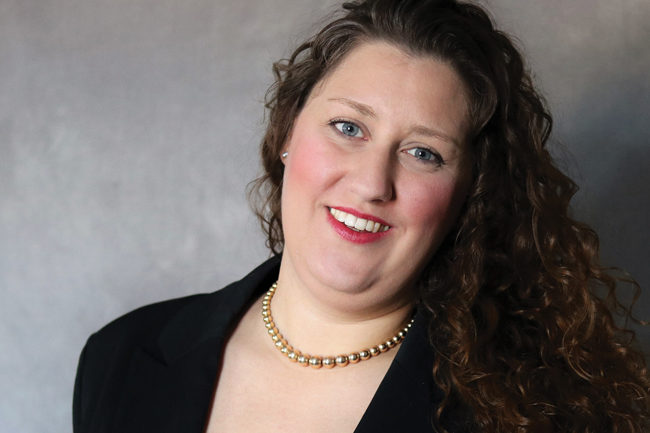
“We are a history company and, with that at our heart, we have to understand that everyone has a different perspective on historic events,” she said. “That perspective can be affected by age, race, gender, economics or even what high school you went to. For us, history is the search for facts and truth, told though the feelings, emotions and experiences of people. The more varied our team is, the better job we can do at presenting a true and inclusive history of Detroit to our guests.”
What is your guiding principle to live by?
In all things, treat people the way you’d like to be treated. From guests and clients of the companies to employees, I believe in treating everyone with dignity, respect and a promise of hard work, fairness and opportunities.
Who was your mentor in life and why?
I love Richard Branson’s style of leadership: Train your people well enough and they can go anywhere. Treat them well enough and they never leave.
What are the biggest challenges facing women business leaders?
Finding the people who believe in you, from funding to services delivered. I’ve noticed that as a woman-owned business, we’ve always had to try a little harder. One of the biggest challenges is finding the first foot-in-the-door opportunity, that first person who gives you a chance that you can then build a relationship on.
What is the best advice you can offer to other potential women business leaders?
You will always have people who say you can’t do it. Do it anyway. If that means that the method you use or the path you take is different, that is fine. In fact, the best companies are the ones that find a better way. Be a source of help to others. When they make it you’ll have a friend whose company will be the first to send over swing employees to fill shift gaps, show up to help pack orders, or buy you a drink on the hardest days.
What is your most recent success story?
This fall I was able to step away from a full-time job at General Motors to run Detroit History Tours and the Detroit History Club full time. After more than a decade (in the auto industry), it was a gut-wrenching leap to transition to fully self-employed, but so far it’s been fantastic. I’m able to accept more bookings, we are training more staff, and 2019 will be our largest year ever with over 275 tours and 30 events planned. For a company that started off as a hobby — my personal love letter to Detroit history — to now support my living wage and the good-paying living wages of a staff is our greatest success.
What was your worst business decision?
Early on in the company, I wasn’t thinking like a business owner. I allowed myself to be railroaded into choices that I would never make today. They ended up being expensive mistakes in the first year and a crash course in the difference between a business and a hobby. Today I call them my “education expenses” because, although I paid for them, they did teach me a ton. My biggest takeaway from my mistakes was that saying no is part of the job. Being seen as mean, or any other nasty word choice, is going to happen, but reputable people won’t be offended by questions about their polices or pricing.








